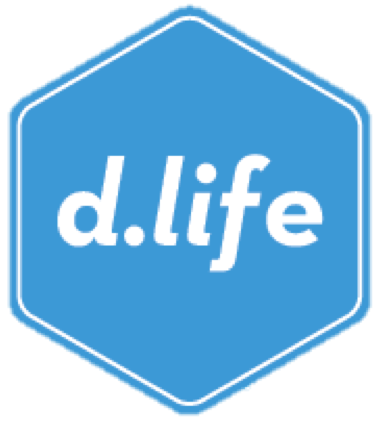Oakland University
Freshman Exploration Case Study
After attending the Virtual Design Studio, our team was inspired to tackle an important question:
"How might we use Life Design principles to support the career exploration process of freshmen at Oakland University?"
This case study chronicles our iterative journey to answer this question, highlighting the steps we took, the lessons we learned and the meaningful outcomes of our work in shaping the freshman experience at Oakland University.
Getting Started
Following our Design Studio experience, we identified an opportunity to introduce Life Design principles to first-year students at Oakland University. Recognizing that Life Design was an unfamiliar concept to our students, we partnered with the First Year Advising Center, an office dedicated to empowering first-year students to define their educational goals and achieve academic success through tailored services and connections to campus resources.
As a first step, we explored ways to include Life Design in the syllabus for a first-year seminar course touching more than 600 students per semester. Our prototype involved a one-hour session introducing students to the concept of Life Design. While the session received positive student reviews, we recognized that prototyping would require an iterative approach. Feedback revealed that the session felt overly lecture-focused, and one group activity did not achieve its intended outcomes. Additionally, the session felt rushed, prompting us to consider extending the timeframe and incorporating more interactive activities to inspire curiosity and encourage a bias toward action through hands-on prototyping.
Prototype Take 2
As we planned for the next year of workshops with our campus partner, we brainstormed, iterated and developed a solution that expanded our content from one session into two. These sessions minimized lecturing on process theory, as we found it did not resonate with our students. Instead, we shifted our focus to teaching Life Design Mindsets, encouraging students to embrace curiosity and take personalized steps to explore their paths. Using tools like the career assessment Focus2 and the Odyssey Plan—referred to as Journey Mapping—we guided students in envisioning three unique futures for themselves and crafting a meaningful campus experience to build their personal compass.
Materials we used:
Because we were going into each of the 30 sections of the class twice, we expanded our roster of facilitators to our entire team of Career and Life Design Coaches. This proved to be an excellent opportunity for us to define our Life Design brand further and facilitate a dynamic team bonding experience.
Our students responded very well to our newly designed sessions.
92% of participants said they identified at least one next step to help them clarify future goals
93% of participants felt confident Oakland University had the support and resources to assist them as they made important decisions about their major and career after attending the sessions.
Post-Session Student Testimonials:
"I liked mapping out my plans and thinking of the possibility of doing something other than what I originally planned to do."
"I liked how we were given the Journey Mapping activity as I feel like it put into perspective how prepared I am for my future and what steps I should take in the near future."
"I liked that I was able to explore more options beyond my current plan. It made me feel more secure about finding a viable career."
When we saw our impact, we were excited to brainstorm additional ways we could collaborate with our First Year Advising Center to support freshmen. This success led us to consider the next iteration of our well-framed problem - How might we use Life Design principles to support the journey of Exploring Students?
Life Design and Freshmen Exploring Students
In Fall 2023, we partnered again with the First Year Advising Center to create an Exploration Task Force, combining our resources to support freshmen who had not yet chosen a major. The task force focused on evaluating how Oakland University supports and retains "Exploring" students, with the goal of developing and implementing common language rooted in theoretical frameworks to define the exploration process in a clear and meaningful way for students. We established a collaborative process where the First Year Advising Center identified exploring students, provided education on majors and campus resources, and assigned follow- up steps, including using the career exploration tool Focus2 and scheduling a meeting with the Career and Life Design Center. During these meetings, we debriefed students on their Focus2 results, guided further exploration using the Career Compass, and connected them with opportunities to explore industries and build social capital through informational interviewing.
Positive Outcomes Observed in the first year of our collaboration
Freshman student appointments with our office increased by 138%
Highest retention of "Exploring Students" in six years at 80%, surpassing the overall retention rate by 2%
61% of exploring students started their second year with a declared major, an 18% increase over previous six years.
Lessons Learned
We have been thrilled to see Life Design's impact on freshmen at Oakland University. Since our first prototype, we have made significant strides and learned valuable lessons along the way:
Try again: Your first prototype may not be perfect, which is okay. Gather student feedback and use these insights to build a customized plan that works for your university.
Find your partners: After our Design Studio experience, our priority was finding campus partners eager to explore Life Design. We succeeded with the active collaboration of the First Year Advising Center and their commitment to supporting students.
You are never alone: Stay connected with the community of practice established by the Stanford Life Design Lab. Much of our freshman content has been inspired by resourcesfrom the Lab and trailblazers like Marc Hunsaker of Berry College and Joe Catrino of Trinity College.
Life Design has the potential to positively influence the student experience in many ways. If you would like to learn more about how we are using Life Design tools to support career exploration and student success, contact Kelly Dorner at kdorner@oakland.edu



